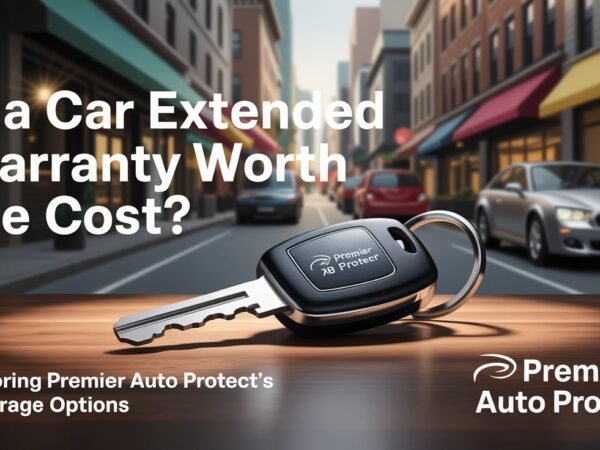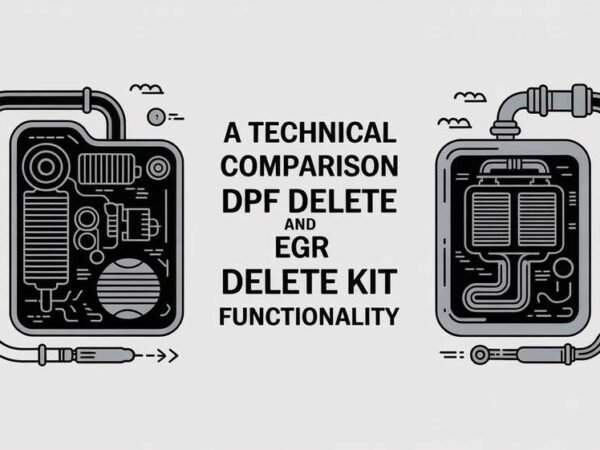If you’ve ever owned a hybrid vehicle, chances are you’ve heard the horror stories. Someone’s battery gave out, and suddenly, they’re facing a repair bill that rivals a decent down payment on a new car. “Might as well just buy a new one,” they say with a defeated sigh, as if their trusty hybrid has become an outdated gadget destined for obsolescence. But let me tell you—this is one of the biggest myths in the auto industry. And today, we’re tearing it apart.
I’ve been covering automotive tech for years, and a few topics are as misunderstood as hybrid battery replacements. Particularly, let’s talk about a real champion of the hybrid world—the Toyota Prius. There’s a reason why Charlotte, North Carolina, has thousands of them on the road, and it’s not just because they make Uber drivers look environmentally conscious. These cars are engineered to last, and the battery? It’s not some ticking time bomb. But dealerships, manufacturers, and even some mechanics want you to believe otherwise.
How the Industry Overcharges for Hybrid Battery Replacements
Do you ever feel like the moment your check engine light pops on, mechanics see dollar signs? That’s precisely what happens when a hybrid battery shows signs of wear. In the case of a 2011 Prius battery replacement, many drivers believe they need a brand-new, factory-installed battery that costs between $3,000 and $5,000. And sure, if you’re walking into a Toyota dealership, that’s probably the price you’ll hear with a straight face from the service manager.
They won’t tell you that this price is artificially inflated by dealer markups, labor charges, and the ever-present fear-mongering that hybrid owners often fall victim to. It’s not uncommon for a perfectly serviceable battery to be swapped out when, in reality, a proper refurbishment or reconditioned pack could have done the job for a fraction of the price. Hybrid Battery Service in Charlotte specializes in precisely that—offering budget-friendly alternatives without sacrificing quality.
Why Do Hybrid Batteries Even Fail? (Hint: It’s Not Just Old Age)
Here’s something the industry doesn’t talk about enough: hybrid battery failures aren’t always a natural part of aging. Yes, after 8-12 years, the cells can degrade, but a 2011 Prius battery replacement doesn’t always have to mean a total loss. One of the biggest reasons for hybrid battery failures is heat.
Toyota designed the Prius with an air-cooled battery system, which works well in moderate climates but is not ideal in places with sweltering summers. North Carolina, for instance, has temperatures that can cook the insides of a battery pack over time, significantly reducing its lifespan. Battery cooling fans, which are often clogged with dust, pet hair, and whatever debris your backseat passengers bring in, can accelerate this issue if not properly maintained.
Another reason is uneven charge distribution. Unlike your smartphone battery, which drains and recharges predictably, hybrid batteries have cells that operate in a pack. If one or two cells fail prematurely, they drag the entire system down. Instead of replacing the whole thing, experienced technicians (not dealerships) can pinpoint and replace just the faulty modules—again, saving thousands.
Are Newer Hybrid Batteries Any Better? The Good, the Bad, and the Expensive
It’s worth noting that Toyota has improved battery technology over the years. The newer lithium-ion packs used in some Prius models, rather than the older nickel-metal hydride (NiMH) ones, offer better performance and efficiency. They charge faster, last longer, and weigh less. But here’s the kicker—they are significantly more expensive to replace.
A standard 2011 Prius battery replacement can be done affordably with a high-quality refurbished NiMH pack, but newer lithium-ion batteries don’t have as many third-party refurbishing options yet. Lithium-ion batteries degrade differently, often suffering from capacity fade rather than individual cell failures. Once they reach a critical point, they’re done. That means when your newer Prius battery dies, you’re looking at a much higher cost of replacement—something many hybrid owners don’t realize when upgrading to a newer model.
The Global Push for Battery Recycling—And Why the U.S. Is Behind
Here’s where things get interesting. While places like Japan and Germany have strict policies for hybrid battery recycling, the U.S. is still lagging. In Charlotte, hybrid batteries are often shipped to recycling plants or sitting in scrapyards despite being completely repairable. The sad reality is that automakers make more money selling new batteries than refurbishing old ones, which is why programs for battery restoration are often underfunded or nonexistent.
This is where services like Hybrid Battery Service in North Carolina step in, providing a much-needed alternative. Instead of trashing a perfect battery pack, they diagnose the failing modules and replace only what’s needed. It’s not just a cost-saving measure; it’s an environmentally responsible one.
Toyota Knows Hybrid Batteries Last—But They Won’t Say It Out Loud
Toyota engineers have known for years that Prius batteries can outlast their warranty claims if adequately maintained. Many Prius taxis worldwide have racked up over 300,000 miles on their original battery packs. This isn’t an accident—it’s proof that these systems were designed to be robust.
Yet, if you walk into a dealership asking about a 2011 Prius battery replacement, they’ll think it’s a foregone conclusion that you need an expensive brand-new pack. They won’t tell you that a professionally refurbished pack can give you the same lifespan at half the cost.
Toyota’s silence on this is understandable—they must sell new cars. But as a reporter who’s seen how the industry operates, I can tell you that hybrid owners have more options than they think. In Charlotte, drivers have places like the 2011 Prius battery replacement by Hybrid Battery Service that can get them back on the road without financial heartache.
Now that we’ve uncovered the myths around pricing, let’s discuss what happens inside a hybrid battery when it fails, the pros and cons of different repair methods, and whether extended warranties are worth it. Click “continue generating,” and we’ll dig even more deeply.
What Happens Inside a Hybrid Battery When It Fails?
Suppose you crack open a hybrid battery pack (which I don’t recommend unless you like the idea of being zapped by high voltage). In that case, you’ll see a series of individual cells linked together, forming a larger battery module. The Toyota Prius, for example, typically contains 28 modules in its nickel-metal hydride (NiMH) battery pack. When the battery is new, all these modules work harmoniously, distributing and storing energy efficiently. But as time passes, a few things start to go wrong.
Cell imbalance is one of the most common culprits behind a failing hybrid battery. Some modules lose their ability to hold a charge as effectively as others, and since the battery pack is only as strong as its weakest module, performance declines. This results in erratic charging behavior, decreased fuel efficiency, and, eventually, that dreaded red triangle warning on the dashboard.
Temperature fluctuations also play a role. Heat accelerates the chemical aging of battery cells, so hybrid taxis running in hot climates like North Carolina tend to experience battery failures more quickly. Toyota designed the Prius battery with cooling fans, but if these aren’t cleaned regularly, they get clogged and become ineffective.
Then, there’s the issue of deep discharge cycles. Unlike traditional lead-acid car batteries, hybrid batteries are designed to maintain a relatively stable charge range. But when cells start degrading, they can drop to dangerously low voltage levels, damaging the entire pack. This is why reconditioning works—if caught early enough, weak cells can be restored to a usable state instead of being discarded entirely.
Replacing vs. Refurbishing: What’s the Smartest Option?
So, what’s the best way to deal with a dying hybrid battery? If you go to a dealership for a 2011 Prius battery replacement, they’ll tell you the only viable solution is installing a new factory battery. While this does guarantee optimal performance, it also comes with a hefty price tag—often exceeding $4,000 after labor costs.
A better approach for many hybrid owners is refurbishment. This process involves identifying and replacing only the faulty modules while reconditioning the remaining ones. Not only does this method drastically cut costs, but it also reduces waste, making it the more environmentally responsible choice.
However, there are some downsides to consider. Refurbished batteries don’t always have the same longevity as a brand-new pack, especially if the replaced modules aren’t perfectly matched in age and performance. That said, when done by a reputable service like Hybrid Battery Service in Charlotte, a professionally reconditioned battery can still provide years of reliable use at a fraction of the cost.
Are Extended Warranties for Hybrid Batteries Worth It?
One of the sneaky ways car manufacturers try to capitalize on hybrid owners’ battery anxiety is by offering extended warranties. Toyota, for example, provides an eight-year/100,000-mile warranty for hybrid batteries in most states, but in states following California emissions laws, that coverage is extended to 10 years/150,000 miles.
Sounds great, right? Well, here’s the catch—most hybrid batteries will still function beyond that warranty period, meaning you might not even need the extended coverage. When your battery starts to degrade significantly, you’re already looking at other repair options, making the warranty less valuable.
Another thing to consider is that extended warranties often come with fine print that excludes issues caused by heat damage, improper maintenance, or deep discharges. Since these are some of the most common causes of battery failure, you might pay for a new battery out of pocket.
How China and Europe Are Changing the Hybrid Battery Game
While the U.S. is still catching up regarding hybrid battery sustainability, other countries are ahead. In China, companies like CATL and BYD are developing next-generation battery technologies prioritizing longevity and recyclability. Some of these new designs could make traditional nickel-metal hydride and lithium-ion packs obsolete within the next decade.
On the other hand, Europe has imposed strict regulations on battery disposal, forcing manufacturers to create more repairable and recyclable battery solutions. In Germany, hybrid battery refurbishing is becoming an industry standard, with many companies offering reconditioned battery packs as the primary solution instead of expensive new replacements.
If the U.S. follows suit, we could see a significant shift in how hybrid batteries are serviced. Instead of dealerships pushing costly replacements, a network of specialized battery refurbishing centers might become the norm—something that Hybrid Battery Service in Charlotte is already ahead of the game.
The Future of Hybrid Battery Tech—And What It Means for Prius Owners
Automakers are already looking beyond traditional hybrid battery designs. Toyota, for example, has invested billions into solid-state battery research, promising smaller, lighter, and more efficient energy storage solutions in the next decade. If these batteries reach mass production, they could last a car’s entire lifespan without needing replacement.
However, hybrid owners still need affordable solutions when their batteries fail. A 2011 Prius battery replacement doesn’t have to be an expensive nightmare—it can be a straightforward, cost-effective process when handled by experts specializing in refurbishment and repair.
Why Hybrid Battery Service Is the Smart Choice for Prius Owners in Charlotte
So, where does this leave the average hybrid owner in North Carolina? The dealership route is always there, but there’s a better way for those who want to keep their hybrid running without throwing thousands of dollars at a new battery. Hybrid Battery Service offers a practical alternative, providing high-quality reconditioned battery packs and professional repairs at a fraction of dealership prices.
Hybrid technology is here to stay, as are the innovative solutions that make it affordable. Instead of falling for the dealership’s scare tactics, hybrid owners in Charlotte can take control of their vehicle’s longevity by choosing experts who know how to make these batteries last. If you’re facing a 2011 Prius battery replacement, don’t assume the worst—there’s always a more innovative way to keep your hybrid running strong.













